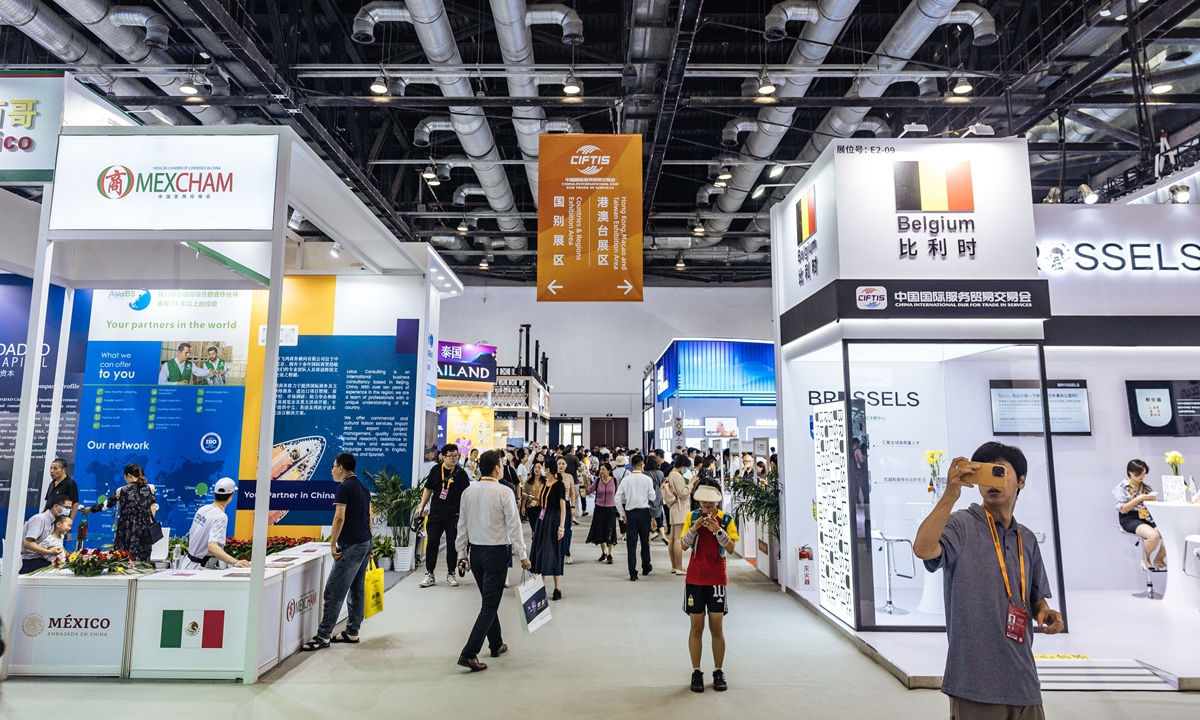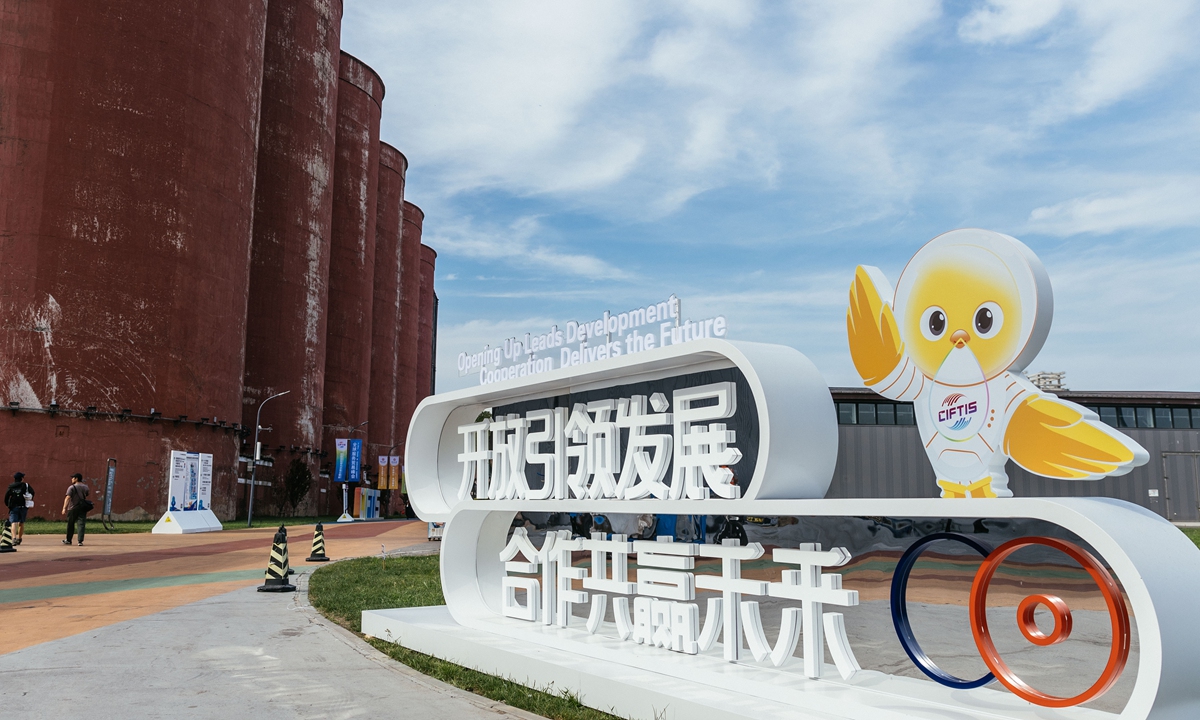Latin American countries woo Chinese investors at CIFTIS amid robust trade, economic relations

A snapshot of the 2023 China International Fair for Trade in Services (CIFTIS) at the China National Convention Center in Beijing on September 3, 2023. Photo: Li Hao/GT
Latin American countries are seizing opportunities at the 2023 China International Fair for Trade in Services (CIFTIS), the world's largest services trade fair, to promote win-win cooperation to add new growth drivers to the fast-developing economic and trade relationship.
Commerce officials from the Dominican Republic, Ecuador, Mexico, Uruguay and Colombia took opportunities and platforms at the 2023 CIFTIS to promote their countries' most appealing products and services, and sought to attract Chinese investment at a sub-forum on Tuesday.
In recent years, China's trade and economic cooperation with Latin America has moved onto a fast track of development.
In 2021, China's trade with Latin American countries exceeded $450 billion for the first time, with a 41 percent year-on-year increase. In 2022, trade further increased to $485.8 billion.
In the first seven months of this year, trade with Latin America grew by 5.5 percent with efforts to diversify markets and improve related infrastructure despite sluggish global demand.
China's trade with Latin America was also blessed with the joining of the China-proposed Belt and Road Initiative by Argentina and Nicaragua in 2022.
With Nicaragua becoming a free trade partner just days ago, China now has five free trade partners in Latin America.
Chinese investment in a number of Latin American countries has grown rapidly in recent years.
Chinese foreign direct investment in Mexico totaled $2.16 billion from 1999-2022, but $900 million, or 43 percent of the total, was done in the past four years, according to Santiago Toledo Teja, Commercial Counselor of the Mexican Embassy in Beijing.
Another $2 billion was in the pipeline as of 2023, according to the Mexican trade official.
Jorge Cevallos, Commercial Counselor of the Ecuadorian Embassy, told the Global Times on Tuesday that there is great potential for China and Ecuador to engage in services trade cooperation.
"So far, we have been focusing on trade of goods. But services have a lot of room to grow. Tourism services, engineering consultancy services, a range of services related to the digital economy, both for logistics and for other kinds of digital payment platforms, as well as translation services, and plenty of different areas," said Cevallos.
Cevallos emphasized that the free trade agreement between China and Ecuador, signed on May 11 this year, has a chapter devoted to e-commerce, which makes Ecuador the first Latin American country to include a chapter of this nature in a trade agreement with China.
"We're actually very happy to have it - China has a lot of development in that area, China is the leader in the development of a different kind of communication, different services related to the digital economy, through which Ecuador can benefit. We have a strong base of software engineers, so we can develop solutions together in order to have our customers better served," Cevallos said.
More could be done to further an already deepening trade and economic relationship, Latin American trade officials at the seminar said.
"In Colombia, you could hail a car with a Xiaomi phone using a mobile app offered by Didi, and in a few years' time, take a subway built by Chinese infrastructure giant China Harbour Engineering Company and operated by a Xi'an-based Chinese subway operator," Shi Hui, senior investment advisor of ProColombia China, said at the seminar.
Shi said in addition to Colombia's coffee, cocoa and timber, cooperation in fintech, movies and gaming also has great potential. "In 2022, China overtook Japan as Colombia's top foreign investor from Asia."
"By the way, the design of swimming suits and underwear in Colombia really deserves Chinese companies' attention," Shi said, noting the exotic Caribbean taste.
Port of Guangzhou, the world's fifth-largest port, on Monday launched a new regular shipping route to Brazil, the fifth international marine route the port developed with BRICS countries this year.


